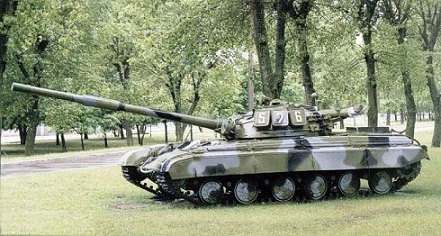A war of survival (weekly review)
By Dzhambulat Are, special to Prague Watchdog
GROZNY, Chechnya – Even though at the end of March the Chechen leadership did not succeed in obtaining the adoption of a federal act calling off the counter-terrorist operations (CTO) in the republic, Ramzan Kadyrov is clearly unwilling to reconcile himself with the present state of affairs. Grozny’s representatives make no secret of the fact that their goal is not only the opening of their own customs office and the granting of international status to Grozny airport, but also the transfer to Chechnya’s police of powers for the maintenance of internal security. Those powers are currently held by units of Russia’s Interior Ministry, FSB and Ministry of Defence forces which are permanently deployed in the republic, and by the sub-units attached to them.
The war with the Russian law enforcement agencies has been continuing for several years now. It began in May 2007 when Kadyrov was still Chechnya’s prime minister, and his security guards were denied entry to the building of the FSB regional directorate. In a fit of rage, he ordered the entrances to be welded together. Following an intervention by Moscow, the entrances were unblocked again.
Conflicts with “the Russians” are frequent – there are rowdy scenes at the ever-dwindling number of barriers and checkpoints on Chechnya’s roads, and clashes between Chechen police and federal paramilitary units for reasons that are many and various. Someone may not have given way, or the movement of a Russian convoy may have led to an accident – but in most such cases the federals are the losers, because of the ban on the use of weapons.
A special problem is presented by disputes about property. Naturally, the authorities would like to get back some of the land near towns that has been occupied by the military for use as troop deployment areas and firing ranges. In 2008 the Chechen government actually won a lawsuit against the Russian Defence Ministry, revoking its right to the perpetual ownership of areas of land in the Argun Museum Reserve, which covers a large tract of the southern and south-eastern Chechen mountains and contains areas of natural beauty and monuments relating to Chechnya’s history and architecture.
Now the 46th Motorized Brigade, which is deployed in the Chechen republic on a permanent basis, is to have its firing range taken away. This was announced last week by Chechen prime minister Odes Baysultanov, who said that the range’s location in the close vicinity of Grozny airport is not consistent with safety standards.
The brigade has been given a new firing range situated five kilometres from the airport. The old one occupied an area of 340 hectares. If a tight-lipped government communiqué is anything to by, the negotiations for the moving of the range are not progressing smoothly at all. The 46th Brigade command is insisting on being allocated a 470-hectare area of land, while the Chechen government considers it “impractical to provide them with such a large territory.”
This situation is directly linked to the special restrictions imposed by the counter-terrorist operations, which the Moscow-backed Chechen leaders expect to be lifted any day now. Baysultanov justifies the decision by the fact that Grozny airport will soon receive federal permission to open for international flights. And this will only be possible if the counter-terrorist operations are called off, or individual elements of them withdrawn.
Work is already proceeding on the construction of an international terminal at the airport. In endorsing Baysultanov’s move, Ramzan Kadyrov has also expressed confidence in an early end to the counter-terrorist operations.
However, Moscow seems to be in no hurry to rush to a decision on this matter. Back in March, Dmitry Medvedev said that the situation in the republic should remain under the control of the FSB. This means that the Kremlin is afraid to put Chechnya completely in Kadyrov’s hands, even though it is prepared to meet his wishes where the lifting of the basic restrictions is concerned. Leaked reports suggest that the customs office and the airport will be the first "presents" to the republic’s leader, but for the moment no one is going to take any radical steps to curb the powers of the federal law enforcement agencies in Chechnya.
Photo: snariad.ru.
Previous weekly reviews can be read at http://www.watchdog.cz/weekly. (Translation by DM) (P/T)
DISCUSSION FORUM
|

